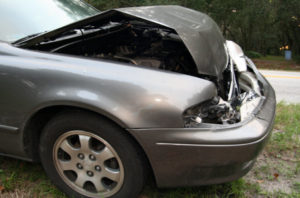
If a taxi driver, bus driver, truck driver, or other similar motorist causes a car crash, the employer may be responsible for damages, according to the theory of respondeat superior (“let the master answer”).
The tortfeasor must be an employee in the legal sense of the word. In negligence cases, courts interpret this word very broadly as “suffer or permit to work.” Assume that a church bus driven by a church volunteer causes a vehicle wreck. In some cases, this driver could be considered an employee for negligence purposes, even though the driver was not an employee in the ordinary sense of the word.
Second, the tortfeasor must be acting within the course and scope of employment at the time of the crash. Courts also interpret this phrase very broadly, and almost any conduct, including driving a car with a company logo on the door, is conduct within the course and scope of employment. About the only defense in this area is that the employee illegally stole a vehicle from the motor pool or engaged in other wrongful conduct.
Typically, the investigating officers always ask tortfeasors where they were coming from immediately prior to the collision. If the tortfeasor was impaired by alcohol, the answer to this question could give rise to dram shop liability. In Illinois, a bar, restaurant, tavern, or other commercial alcohol provider is liable for damages if their intoxicated patrons later cause car crashes.
To establish liability, some states require plaintiffs to prove that the bar or restaurant served a patron who was obviously intoxicated or had a known history of alcoholism. But in the Prairie State, the plaintiff need only establish that:
Intoxication in civil court is not necessarily the same thing as intoxication in criminal court. In a DUI case, the prosecutor must prove that the driver had a BAC of .08 or above, or had lost the normal use of mental or physical faculties. In civil court, the plaintiff must only prove, by a preponderance of the evidence, that the driver was alcohol-impaired.
Third-party liability may also attach to social hosts if they provided alcohol to persons under 21 or were otherwise negligent.
The tortfeasor may not be the only party responsible for the plaintiff’s injuries. For a free consultation with an assertive personal injury attorney in Schaumburg, contact our law firm. We do not charge upfront legal fees in personal injury cases.